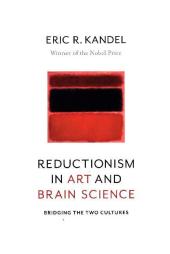 Neuerscheinungen 2016Stand: 2020-02-01 |
Schnellsuche
ISBN/Stichwort/Autor
|
Herderstraße 10
10625 Berlin
Tel.: 030 315 714 16
Fax 030 315 714 14
info@buchspektrum.de |

Eric R. Kandel
Reductionism in Art and Brain Science
Bridging the Two Cultures
2016. 224 S. w. partly col. ill. 236 mm
Verlag/Jahr: COLUMBIA UNIVERSITY PRESS 2016
ISBN: 0-231-17962-6 (0231179626)
Neue ISBN: 978-0-231-17962-1 (9780231179621)
Preis und Lieferzeit: Bitte klicken
Can science and art find common ground? Are scientific and artistic quests mutually exclusive? In this new book, neuroscientist Eric Kandel, whose interests span the fields of science and art, explores how reductionism - the distillation of larger scientific or aesthetic concepts into smaller, more tractable ideas - has been used by scientists and artists alike to pursue their respective truths. Their common use of reductionist strategies demonstrates how science can inform the way we experience a work of art and seek to understand its meaning. Kandel draws on his Nobel Prize-winning work studying the neurobiological underpinnings of learning and memory in the humble sea slug, whose simple brain helps illuminate the complex workings of higher animal minds. He extends these findings to the complexities of human perception, which uses bottom-up sensory and top-down cognitive functions to perceive the world and to appreciate and understand works of art.
"Words like ´genius´ or ´renaissance man´ are rarely used in these egalitarian times, but such descriptions wouldn´t be entirely inappropriate for Kandel, who is renowned for his work on memory. He has now written a remarkable book full of poetic insights, without compromising scientific rigor." - V. S. Ramachandran, University of California, San Diego
Eric R. Kandel is University Professor and Kavli Professor in the Departments of Neuroscience, Biochemistry and Molecular Biophysics and Psychiatry at Columbia University. He is director of the Kavli Institute for Brain Science at Columbia and codirector of the Mortimer B. Zuckerman Mind Brain Behavior Institute. In 2000, he was awarded the Nobel Prize in Physiology or Medicine. He has written extensively on the biology of learning and memory, psychiatry, and art, and is coeditor of the textbook Principles of Neural Science. His recent books include The Age of Insight: The Quest to Understand the Unconscious in Art, Mind, and Brain, from Vienna 1900 to the Present (2012) and In Search of Memory: The Emergence of a New Science of Mind (2007).


